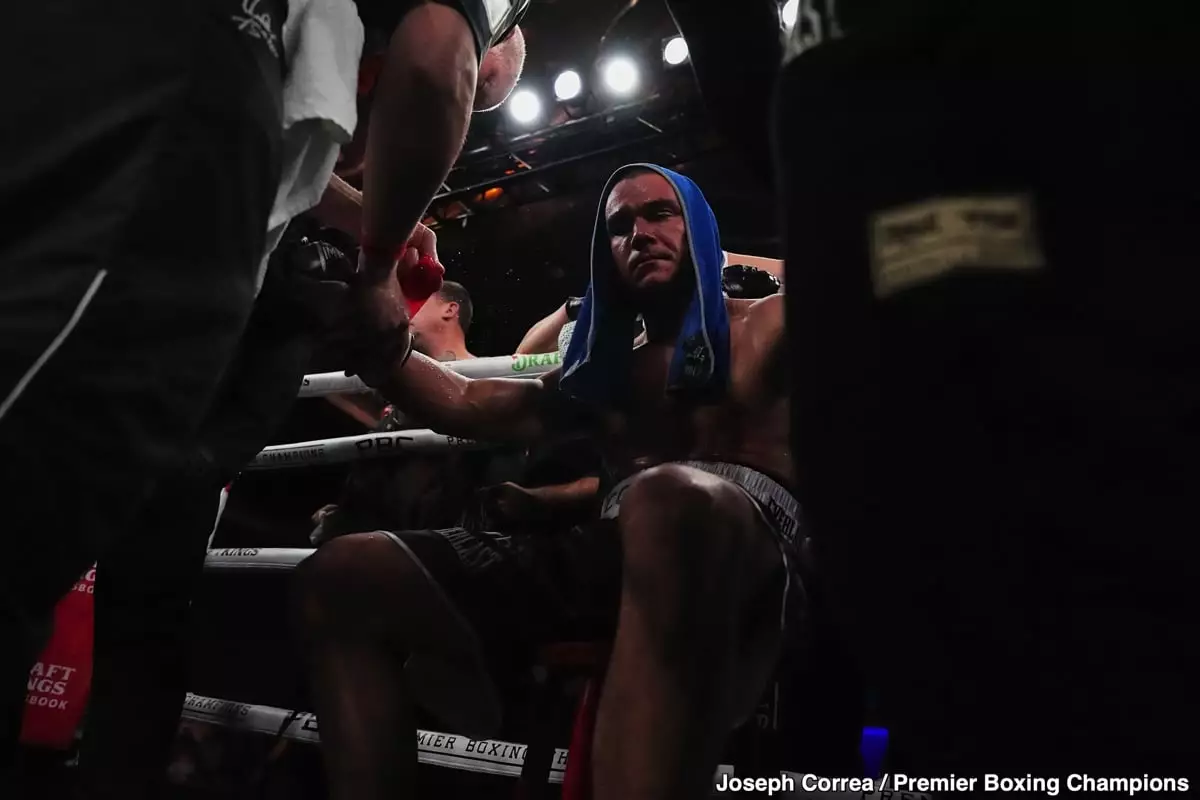Tim Tszyu’s recent defeat to Bakhram Murtazaliev serves as a pivotal moment in his boxing career that could redefine his trajectory. Following a third-round knockout loss at the Caribe Royale Resort in Orlando, Florida, Tszyu is now faced with significant challenges that require both introspection and strategic adjustment. This reflection not only emphasizes the areas needing improvement but also underscores the broader implications of his performance on future endeavors in the ring.
Losing to an undefeated champion is always a harsh reality for any fighter, and for Tszyu, the pain resonates even deeper. With a professional record now standing at 24-2, the immediate aftermath involves dissecting not only the fight itself but the choices made before and during it. The 29-year-old must come to terms with the stylistic errors that contributed to his downfall. Critiques from boxing analysts, such as Keith Thurman, highlight the necessity for Tszyu to bolster his head movement and refine his defensive tactics. Failure to adjust these weaknesses ultimately left him vulnerable to Murtazaliev’s effective jabs and power punches.
One of the most notable aspects of the bout was Tszyu’s inability to pivot during critical moments, particularly after sustaining the first knockdown. Instead of adopting a more defensive and strategic approach, he maintained an aggressive stance that led to subsequent costly mistakes. The impression is that he fought with heart but neglected to blend that passion with the tactical acumen necessary to deliver against a fighter of Murtazaliev’s caliber. This fight not only exposed holes in Tszyu’s game but also posed the question—where does he go from here?
As Tszyu reflects on this lesson in humility, he ought to reevaluate his training and fight preparations thoroughly. One critical step he could take is to reshape his promotional matchmaking strategy. The hard truth is that returning to the ring against top-tier opponents may not be in his best interest right now. To rebuild, he might need to face a series of less formidable opponents who would allow him to regain confidence and work on his technical skills. A fight against a bottom-tier boxer could offer him a valuable opportunity to practice and implement the changes he needs to make—specifically enhancing his defense and head movement.
It’s also vital for Tszyu to consider his camp. Bringing in a new trainer specializing in defensive strategies and boxing fundamentals could aid in refining his craft. Historical trends in boxing show that many fighters have revitalized their careers through strategic overhauls in training, which helps them better withstand adversity in the ring. Coupled with choosing fights that allow him to regain his footing in the sport, this could form a sturdy foundation for a comeback.
The road to recovery for Tszyu isn’t solely about physical adjustments; psychological resilience plays a pivotal role as well. Coping with a knockdown, especially in a high-stakes environment, takes a mental toll. Promoters and analysts alike emphasize the mental aspect of the sport, echoing sentiments like those from No Limit CEO, Matt Rose, who highlighted Tszyu’s brash courage. However, bravery alone cannot replace the need for a sound tactical plan. Tszyu must harness his previous experiences, learn from the setbacks, and evolve not just as a fighter but as a strategist capable of navigating the complexities of the ring.
Moreover, addressing health concerns following the fight is crucial. Reports indicate Tszyu sustained a concussion and sought medical attention post-fight, underscoring the physical risks within the sport. Prioritizing recovery and ensuring his body is in optimal condition before returning to training or competition is imperative for his long-term success in boxing.
Tim Tszyu’s journey towards recovery from this setback will require a multi-faceted approach that blends technical skill enhancement with mental fortitude. This involves strategic fight selections, possible changes in coaching, and an understanding of the importance of a supportive environment. Learning from losses can propel a fighter to new heights; however, it necessitates acknowledging weaknesses, committing to improvement, and staying grounded amidst the high expectations of competitive boxing.
As Tszyu prepares for this next chapter, he must embrace the lessons learned and channel them into actionable strategies that will ultimately lead to a more refined boxing career. The path may be arduous, but with the right adjustments, he could rise again to contend for championship glory.


Leave a Reply